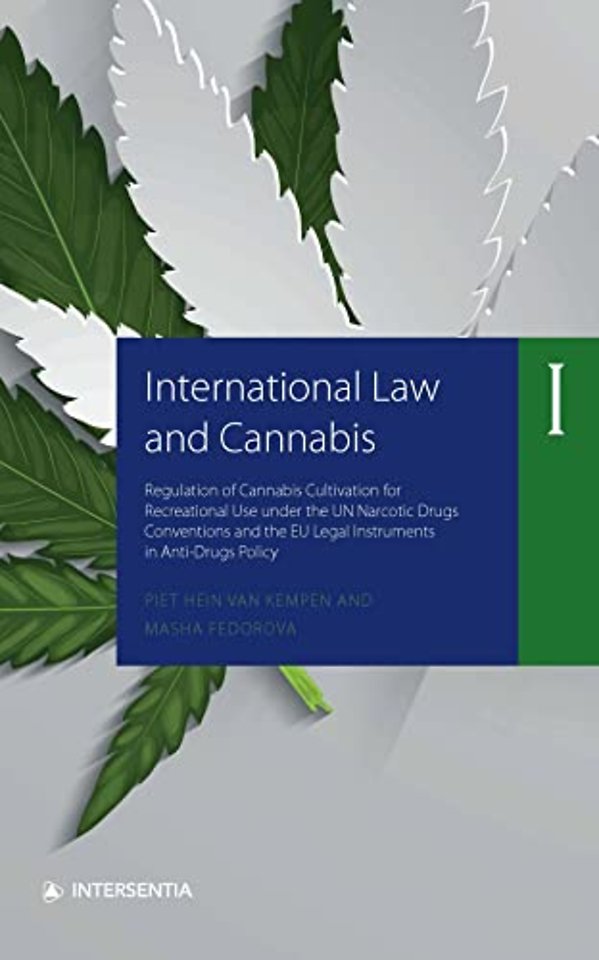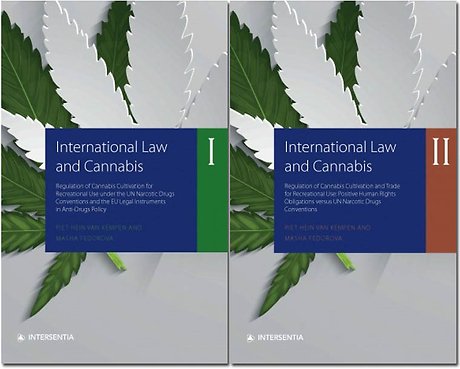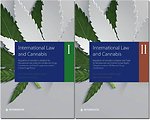


Piet Hein van Kempen, LL.M, PhD is Full Professor of Criminal Law and Criminal Procedure Law at Radboud University, Nijmegen, the Netherlands.
Meer over de auteursInternational Law and Cannabis - set
Paperback Engels 2019 1e druk 9781780688725Samenvatting
What legal avenues do states have to regulate cannabis cultivations and trade for recreational use? This question has generated heated discussions in various societies, in political and academic discourses. Several states are considering adjusting or have adjusted their legal and policy approaches towards a more lenient regulation of cannabis cultivation and trade for the recreational user market.
Volume I addresses the legal question of to which extent domestic initiatives involving the regulation of cannabis cultivation for recreational use are compatible with the relevant UN narcotic drugs conventions and European Union law. To this end, the book provides a comprehensive and detailed analysis of the UN Single Convention on Narcotic Drugs (1961), as amended by the Protocol in 1972, and the UN Convention against Illicit Traffic in Narcotic Drugs (1988). The relevant European law is also considered, particularly the so-called Schengen acquis (1985 Agreement and 1990 Implementation Agreement), the Joint Action on illegal drug trafficking (1996) and the Framework Decision on Illegal Drug Trafficking (2004). This analysis forms the basis for an evaluative framework for various initiatives that have advanced the regulation of cannabis cultivation for reactional use in several states, such as the “coffeeshop system” in the Netherlands, the steps towards legalisation of cannabis in several states in the Americas and Canada and the phenomenon of Cannabis Social Clubs.
Volume II takes an innovative approach to this issue and approaches the possibility for regulation of cannabis for recreational use from the perspective of positive human rights obligations. To what extend can regulation of cannabis for recreational use, for the sake of health, safety and crime control, be considered a positive human rights obligation resulting from the right to health, the right to life, the right to physical and psychological integrity and the right to privacy? From the subsequent conclusions, a second pertinent question arises: what hierarchical relationship, if any, exists between these positive human rights obligations and the obligations arising from the UN drugs conventions? Through an in-depth and systematic analysis of relevant international human rights law and public international law, this book presents the steps, assumptions and conditions that are relevant if a state were to decide, on the basis of the incumbent positive human rights obligations, to permit cannabis cultivation and trade for the recreational user market under regulation.
Specificaties
Lezersrecensies
Over Masha Fedorova
Vaak samen gekocht
Anderen die dit boek kochten, kochten ook
Rubrieken
- advisering
- algemeen management
- coaching en trainen
- communicatie en media
- economie
- financieel management
- inkoop en logistiek
- internet en social media
- it-management / ict
- juridisch
- leiderschap
- marketing
- mens en maatschappij
- non-profit
- ondernemen
- organisatiekunde
- personal finance
- personeelsmanagement
- persoonlijke effectiviteit
- projectmanagement
- psychologie
- reclame en verkoop
- strategisch management
- verandermanagement
- werk en loopbaan







